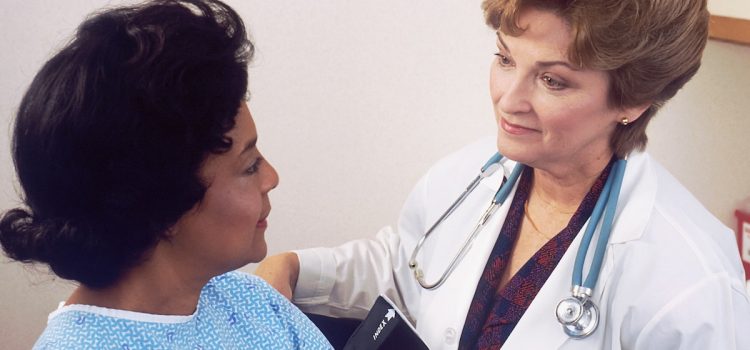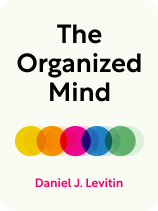

This article is an excerpt from the Shortform book guide to "The Organized Mind" by Daniel J. Levitin. Shortform has the world's best summaries and analyses of books you should be reading.
Like this article? Sign up for a free trial here.
When you’re making medical decisions, what do you consider? How do you evaluate your options?
Medical decisions are some of the most important decisions you make. Neuroscientist Daniel J. Levitin argues that you shouldn’t try to intuit such decisions because your brain just isn’t good at it. He recommends using a fourfold table to analyze the information you’re working with.
Continue reading to learn how to use this process for informed decision-making in healthcare.
Informed Decision-Making in Healthcare
According to Levitin, informed decision-making in healthcare requires you to externalize information (a process he recommends for decision-making in general). Although your doctors can advise you on what to do, you are ultimately responsible for your own health. Oftentimes, this requires you to make decisions based on probability—like whether to take a particular medication that has some risk of harming you.
Levitin warns against trying to intuit this decision, as many of us do, because we are notoriously bad at intuiting probabilities. There are several reasons for this. First, our brains often ignore the general likelihood, or “base rate,” of something. Second, we focus too much on the worst-case scenario because similar disasters stick out in our memories, even if they’re statistically unlikely. Third, the way an issue is presented dramatically affects our judgment of it. All these phenomena can lead us to judge the probability of something incorrectly—and thus lead us to make poor medical decisions.
For example, some women decided to get tested for BRCA1 and two genetic mutations after actress Angelina Jolie’s viral 2013 op-ed on how her own test results prompted her to have a preventative mastectomy. They likely did so despite the generally low base rate of having these mutations (which can lead to cancer), because they wanted to prevent the worst-case scenario of having breast cancer and because journalists focused on the benefits of Jolie’s surgery and not her statement that most people don’t have the mutation. But this wasn’t necessarily a good thing: Most of these women didn’t need the test, which led to millions of dollars in unnecessary healthcare spending.
(Shortform note: Other experts recommend several strategies for improving your ability to judge probabilities. First, the more you learn about statistics and probability, the better you get at not ignoring something’s general likelihood. Second, the authors of Thinking, Fast and Slow imply that vividly imagining both the worst-case and the best-case scenarios will decrease the likelihood that you’ll focus too much on the worst-case scenario because both the good and bad will stick out in your memory. Third, the more you know about a particular topic, the less your judgment of it will be affected by how something is presented.)
Externalize Probability
To make better medical decisions, Levitin recommends that you stop intuiting probabilities. Instead, externalize them using a “fourfold table” for statistically analyzing data, also known as a 2 x 2 contingency table. This allows you to calculate the likelihood of several possible specific outcomes given their base rate. When you write down the relevant numbers, you’re able to see the probabilities, which allows you to rely on calculations rather than incorrect hunches when making medical decisions—and thus allows you to make better decisions.
(Shortform note: Several reviewers criticized Levitin’s detailed description of how to calculate probabilities and make better decisions, arguing that his methods were too technical and required too much math for the average reader. Other experts recommend more accessible techniques for making better medical decisions. Notably, take your time: Oftentimes, you feel pressured to make a decision quickly since you have limited time with your doctor, not because you need the medical decision right away. The more time you can give yourself to make the decision, the better you’re able to rationally evaluate the pros and cons and the less likely you’ll give into impulse.)
However, Levitin clarifies that you should not rely exclusively on your own calculations when making medical decisions. An experienced doctor is often able to seemingly intuit accurate diagnoses and offer good treatment—not because she’s guessing but because she’s recognizing something with which she’s familiar. She’s spent years looking at similar cases, so she has far more experiential data regarding how likely a particular outcome is, and she’s intuitively able to compare your symptoms to her experience to generate a diagnosis and treatment. For example, if she’s seen 2,000 cases of cancer, and 80% of people with a medical history like yours responded well to a particular treatment, she’ll likely recommend that treatment to you, too.
(Shortform note: How can you ensure that your doctor has enough experience in your medical condition to be able to pattern match effectively? Experts recommend that you ignore their official credentials [like what school they attended] and simply ask them how many similar cases they’ve seen or ask other hospital staff about the doctor: If other staff members don’t like your doctor, you should switch. If you need a different person to treat you, look for doctors who teach other doctors (known as fellowship directors); you’ll find several at a teaching hospital.)

———End of Preview———
Like what you just read? Read the rest of the world's best book summary and analysis of Daniel J. Levitin's "The Organized Mind" at Shortform.
Here's what you'll find in our full The Organized Mind summary:
- The key to living less stressfully in the modern world
- Why our current approach to dealing with stress doesn’t work
- Strategies for sorting and externalizing your thoughts, things, and relationships






